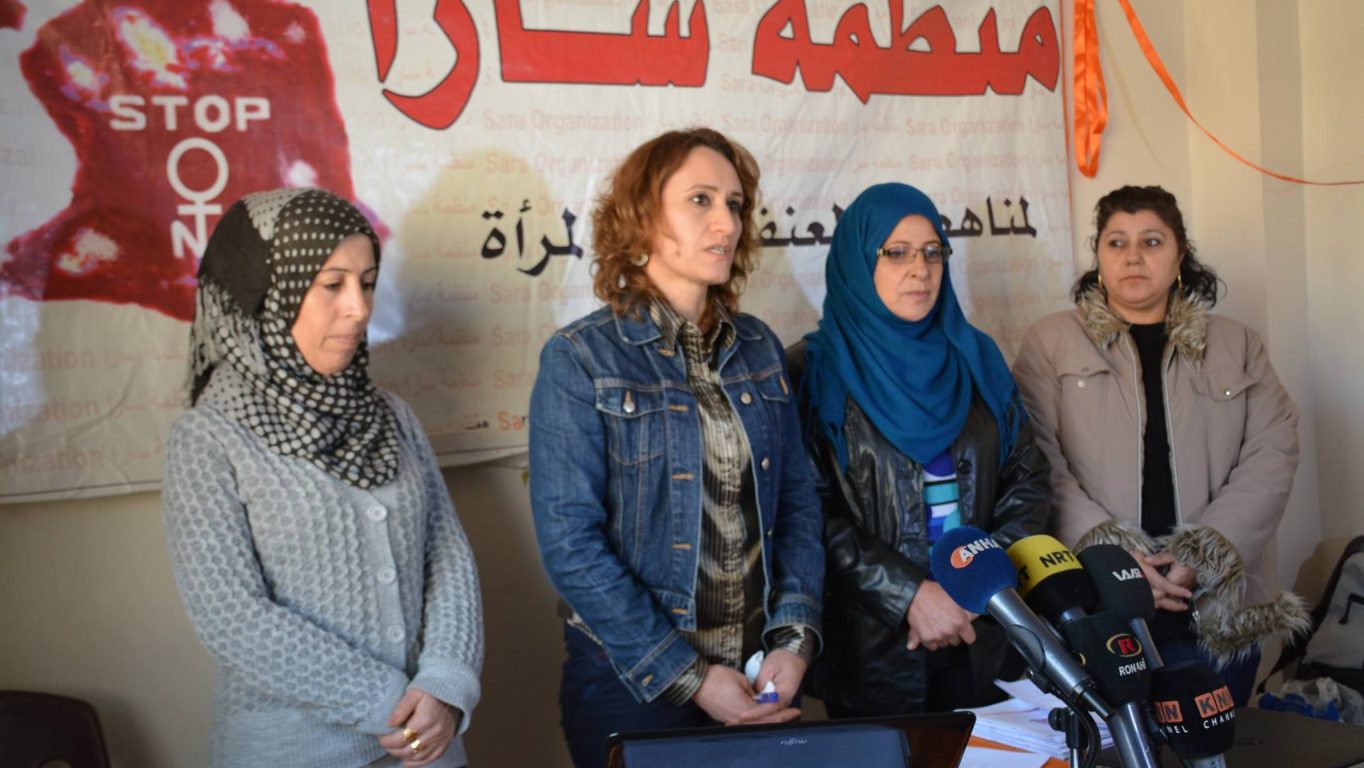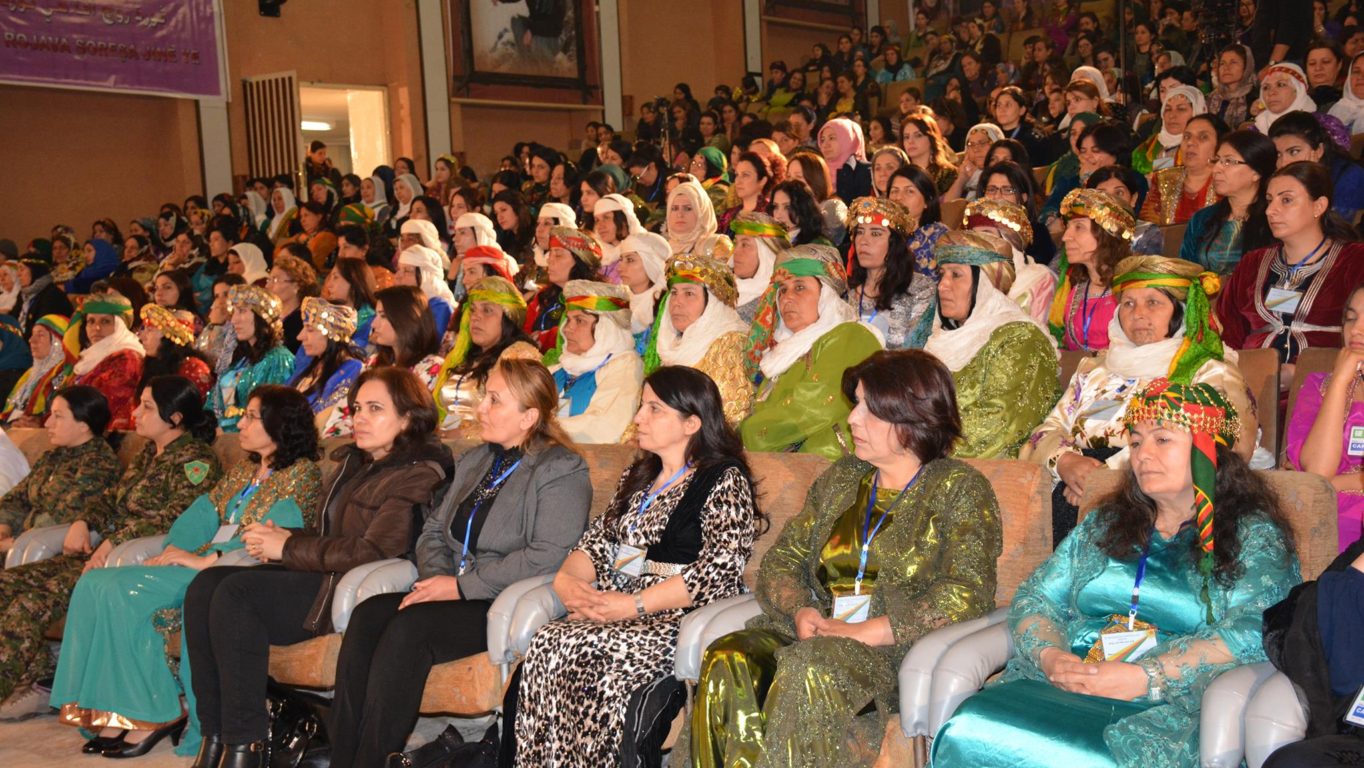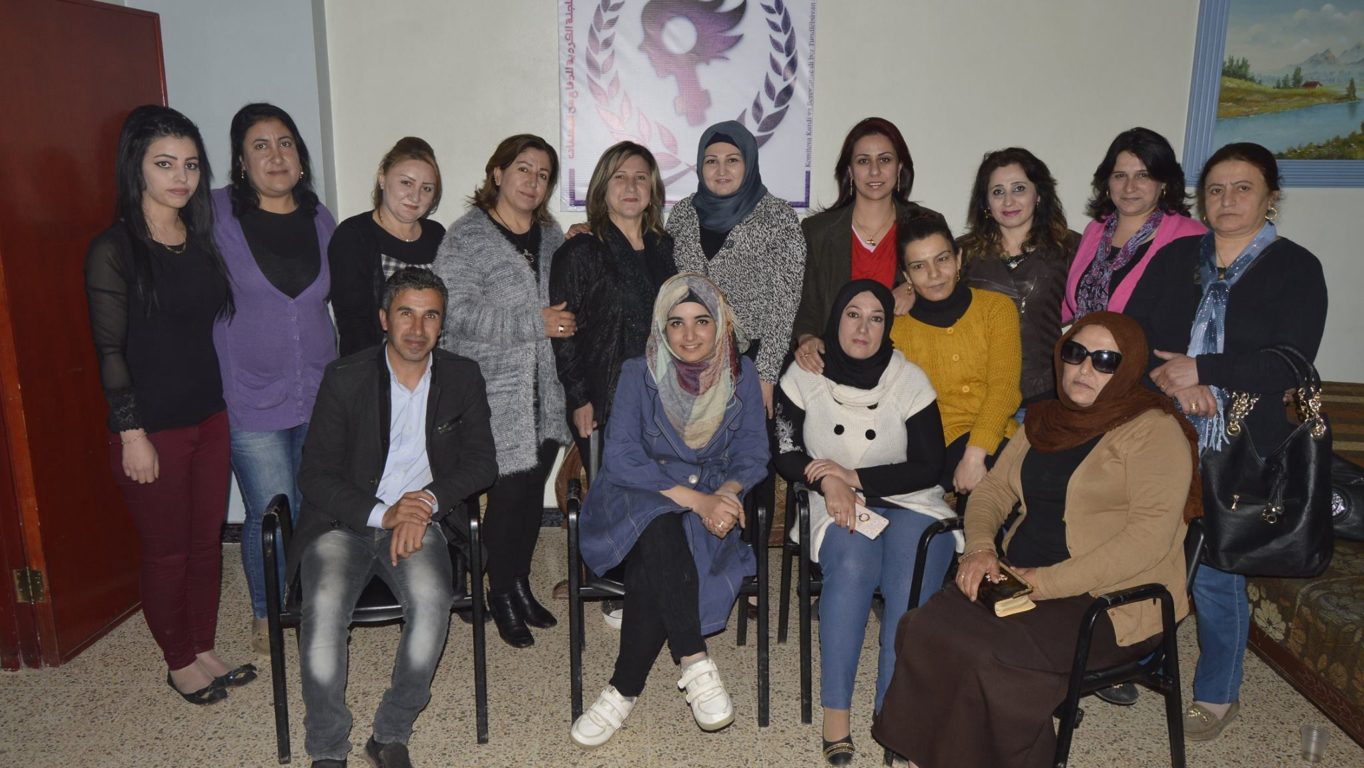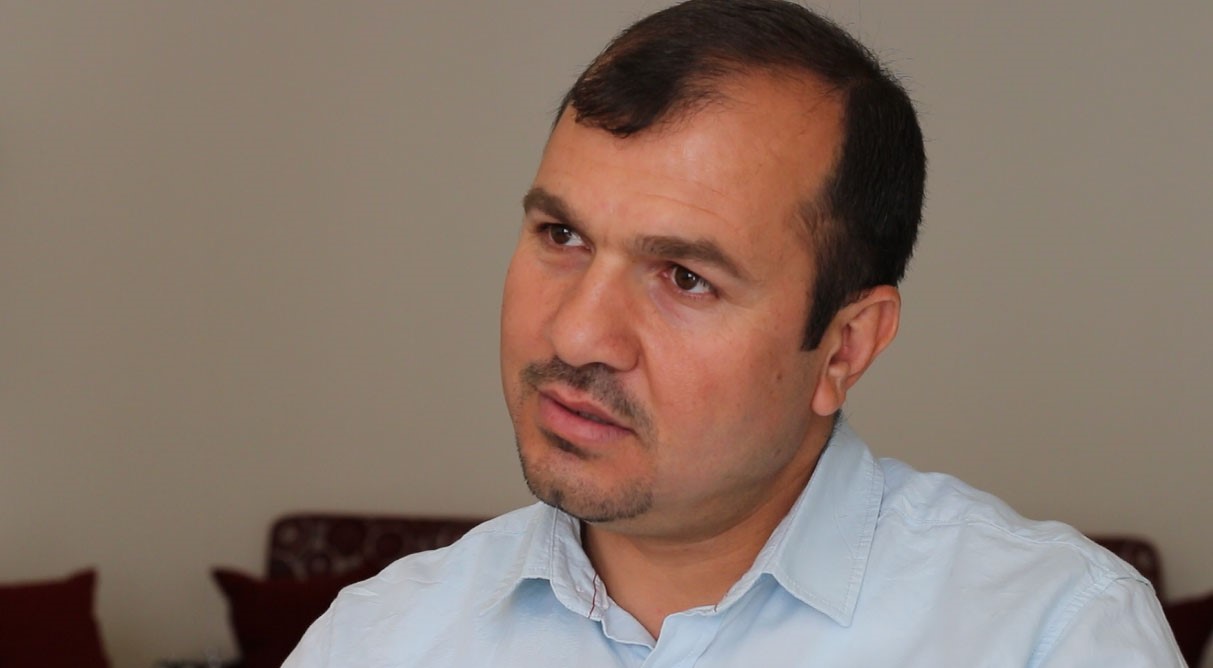Despite being newly-founded and lacking in expertise and financial support, tens of organizations hailing women’s rights have popped up across Rojava (the Kurdish-controlled areas in North Syria) in an attempt to give women a voice in a region where it has been missing for decades.
The Democratic Autonomous Administration (DAA) passed many laws that advance women’s rights, similar to those found in many European countries. Yet these new changes have left the conservative Kurdish society divided, where many argued either for or against the importance of such laws. Therefore, spreading social awareness to advocate gender equality remains a challenging mission.
Some view these women’s organizations as being politicized entities as they share close ties with political parties. One such body is the Kongreya Star, which has directed all its efforts to the service of the DAA. Other independent organizations, such as the Kurdish Committee Against Violence on Women (KCAVW), have solely resorted to holding seminars and discussion sessions in an attempt to spread awareness and encourage both society members and the authorities to protect abused women in Rojava.
Promoting Awareness
The SARA Organization has been active since July 2013 and bases its framework on international treaties and conventions advocating women’s rights. Its members also collect data and statistics regarding any women’s rights violations in Rojava.
“We work to help victims of violence by informing them about their rights and by spreading awareness [...] via lectures and meetings where we shed light on violations,” said Samia Ahmad, a member of SARA administrative board.

Kalawish Kamel, a founding member of the committee, explained that the move was to unify the efforts of different organizations interested in women’s issues and to alleviate the injustice against abused women. In that sense, the organizations would be more effective in reaching solutions and in providing a solid foundation to develop and implement different mechanisms to ensure women enjoy their rights.
“We are implementing modern methods to raise awareness among abused women on how to face violence and how to ward off abusers. We are also trying to push the community and the authorities to provide protection to these women,” explained Kamel.
Political Agendas
The women’s organization Kongreya Star was established in 2005, and it is widely known for working closely with the Democratic Union Party (PYD).

Kongreya Star spokesperson Afin Swede told SyriaUntold that they systematically work on organizing and training women. “[We believe] in building a free, democratic society that believes that the freedom of women is the cornerstone of any free society,” she said, highlighting the movement’s pioneering role in leading womenʼs organizations. “We believe that the revolution of Rojava will remain incomplete if women don’t get their rightful place in society.”
Swede explained that Kongreya Star was a direct result of a need among Kurdish women for a movement that believes in their liberation, noting that many collaborative projects were established in an attempt to raise the economic capabilities of women. “Kongreya Star,” said Swede, “formed women’s groups whose missions was train to take up arms and protect their areas in support of the Women’s Protection Units (YPJ) that are fighting terrorism in the trenches.”
However, Midia Mahmud, an independent researcher and legal activist, disagreed. “These organizations have failed to create any women’s movements,” she said, adding that “to keep up with any kind of work needs steady funding, a thing no organization gets unless it’s affiliated with a political bloc.” According to Mahmud, civil society and women’s organizations fall short for the same reason: the politicization of these bodies. “No women’s organization should be affiliated to a political party. One must not use women’s conditions in society for political or ideological [ends].”
Echoing widespread concerns, she also reminded that women’s rights fall under the umbrella of human rights, and “those who violate human rights can’t respect women’s rights. Those who don’t believe in diversity can’t take into account any organization that doesn’t ideologically follow suit,” noting PYD violations in Kurdish areas.
The Challenge of Social Acceptance
After the official establishment of the DAA in northern Syria in early 2014, the local authorities published the Charter of the Social Contract [Rojava's Constitution until now] in which Article 28 states that “women have the right to organize and to remove all kinds of discrimination based on sex.” Additionally, Article 4 of the DAA’s legislation specifically related to women (Decree 22/2014) emphasizes “the commitment to the idea of administrative participation in all institutions.”
Kongreya Star spokesperson Swede explained that they started a lobby with other women organizations and were successful in altering the public opinion to implement equal participation for women regardless of the level of the post.
“We have been successful in implementing gender equality and now women are 50% [in all posts]. Womenʼs rights have also been recognized in the personal status and civil laws,” she said, adding that “it was a difficult [journey], but we keep on in spite of it.”
Legal activist Mahmud told SyriaUntold that while “it is a positive step for the DAA” to ratify the equality of women to hold different positions, social awareness must go hand-in-hand with the ratification process. “To establish and guarantee laws is an important issue, but the idea is to have the people know and accept these laws.”
KCAVW founding member Kamel responded that her organization has actually launched awareness campaigns to educate women and prompt them to take part in the political scene. “Our project dubbed ‘All together (Killna sawa)’ was launched mid-March in an attempt to empower Kurdish women in the political sphere. Our other project dubbed ‘Share my life with me’ (Sharekni hayati) aims to reinstate women in their natural place in society so they aren’t seen as lesser citizens. We published and distributed for free an educational brochure on the matter.”

One such case is Fatima Tayfur (16) who hailed from the town of Kobani (Ayn al-Arab) and who committed suicide on April 8, 2017. It is cases like Fatima and others that still challenge Rojava’s womenʼs organizations to prove their place and efficacy in conservative Kurdish society.
[Main photo: Women celebrate Women’s Day in the city of al-Hasakah - 8-3-2017 (SyriaUntold)].




